Yuqing Tang
Cross-lingual Retrieval for Iterative Self-Supervised Training
Jun 16, 2020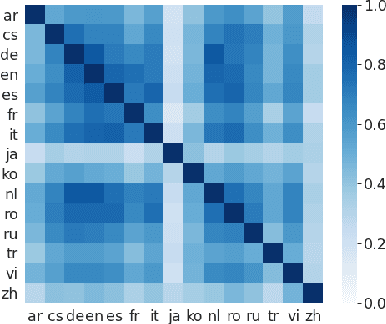

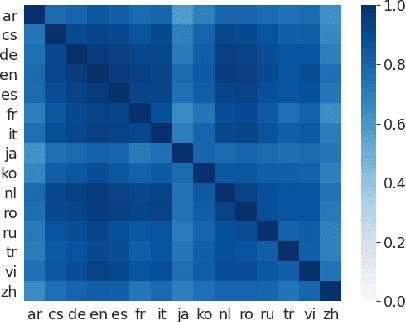
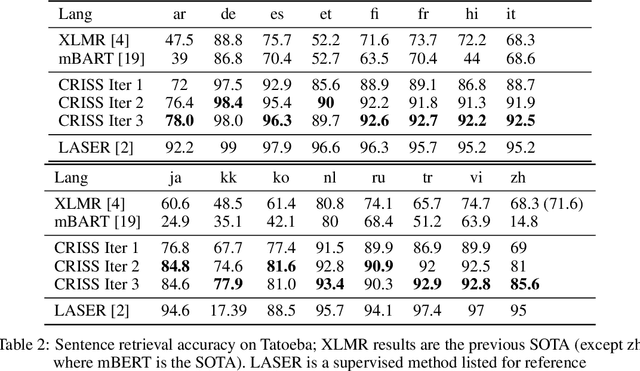
Abstract:Recent studies have demonstrated the cross-lingual alignment ability of multilingual pretrained language models. In this work, we found that the cross-lingual alignment can be further improved by training seq2seq models on sentence pairs mined using their own encoder outputs. We utilized these findings to develop a new approach -- cross-lingual retrieval for iterative self-supervised training (CRISS), where mining and training processes are applied iteratively, improving cross-lingual alignment and translation ability at the same time. Using this method, we achieved state-of-the-art unsupervised machine translation results on 9 language directions with an average improvement of 2.4 BLEU, and on the Tatoeba sentence retrieval task in the XTREME benchmark on 16 languages with an average improvement of 21.5% in absolute accuracy. Furthermore, CRISS also brings an additional 1.8 BLEU improvement on average compared to mBART, when finetuned on supervised machine translation downstream tasks.
Low-Resource Corpus Filtering using Multilingual Sentence Embeddings
Jun 20, 2019
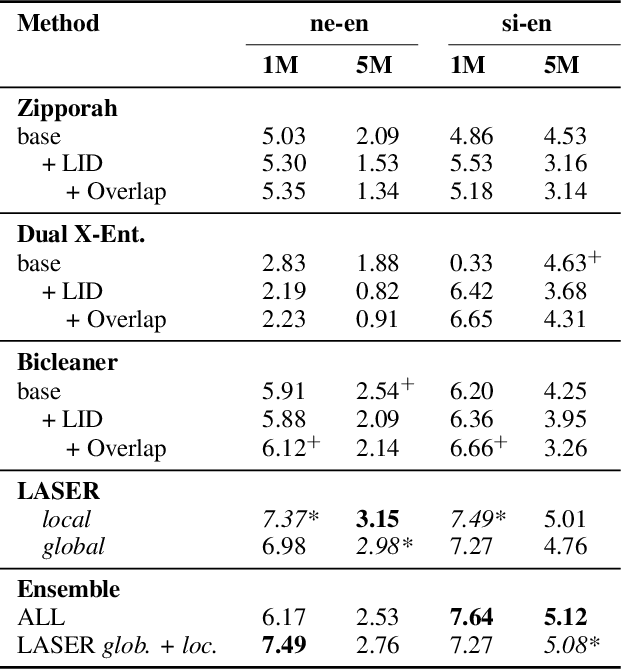
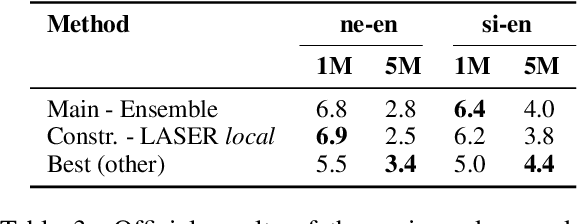

Abstract:In this paper, we describe our submission to the WMT19 low-resource parallel corpus filtering shared task. Our main approach is based on the LASER toolkit (Language-Agnostic SEntence Representations), which uses an encoder-decoder architecture trained on a parallel corpus to obtain multilingual sentence representations. We then use the representations directly to score and filter the noisy parallel sentences without additionally training a scoring function. We contrast our approach to other promising methods and show that LASER yields strong results. Finally, we produce an ensemble of different scoring methods and obtain additional gains. Our submission achieved the best overall performance for both the Nepali-English and Sinhala-English 1M tasks by a margin of 1.3 and 1.4 BLEU respectively, as compared to the second best systems. Moreover, our experiments show that this technique is promising for low and even no-resource scenarios.
* 6 pages, WMT 2019
Reasoning about the Impacts of Information Sharing
Nov 19, 2013
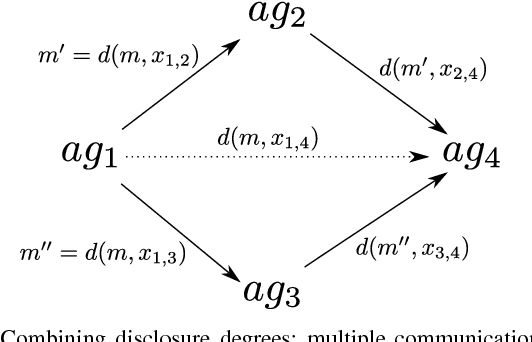
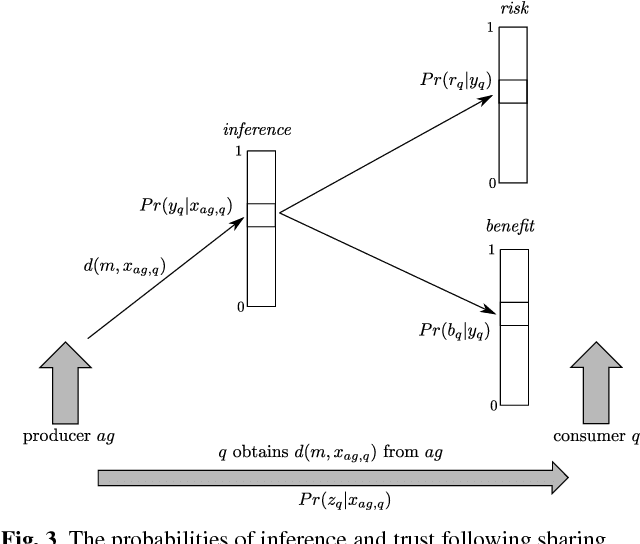
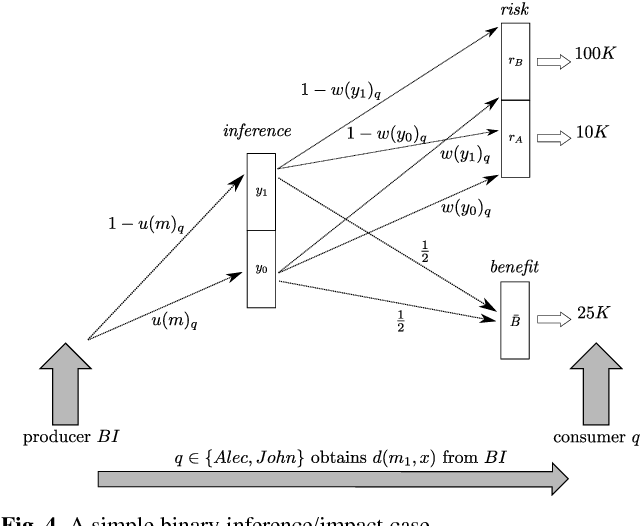
Abstract:In this paper we describe a decision process framework allowing an agent to decide what information it should reveal to its neighbours within a communication graph in order to maximise its utility. We assume that these neighbours can pass information onto others within the graph. The inferences made by agents receiving the messages can have a positive or negative impact on the information providing agent, and our decision process seeks to identify how a message should be modified in order to be most beneficial to the information producer. Our decision process is based on the provider's subjective beliefs about others in the system, and therefore makes extensive use of the notion of trust. Our core contributions are therefore the construction of a model of information propagation; the description of the agent's decision procedure; and an analysis of some of its properties.
 Add to Chrome
Add to Chrome Add to Firefox
Add to Firefox Add to Edge
Add to Edge